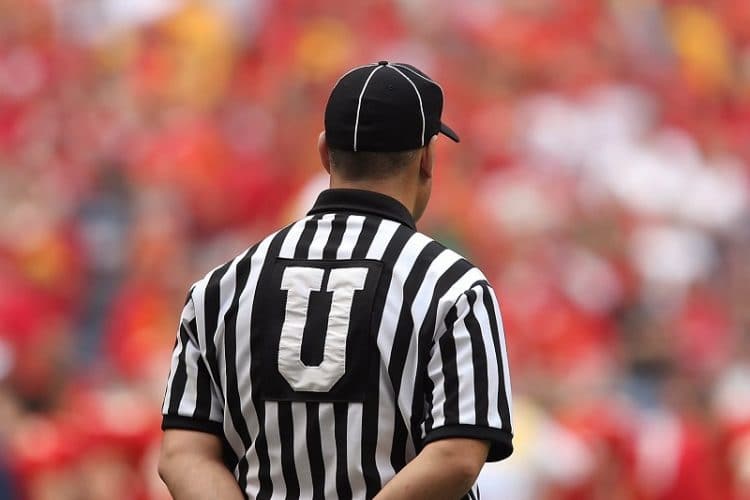Wondering how to communicate through your two-way radio? Well, we are going to cover absolutely everything that you need to know on this page! We really are going to introduce you to the basics of two-way radio communication language, which means that you can hop onto your two-way radio and start communicating with the world sooner as opposed to later. Let’s jump in, shall we?

Radio Communication Intro
Did you know that it doesn’t matter where you are in the world, the general the language spoken on the radio waves will be English? This is to ensure that everybody is able to communicate well. After all, some systems (such as aircraft and shipping) will likely have countless different nationalities trying to use the system, and by ensuring that people communicate only in English, the chances are pretty high that everybody will understand what is going on.
There are a couple of exceptions to this rule, though. Obviously, if you are communicating on an ’empty’ channel with somebody you know, then feel free to speak any language that you want. Nobody is going to care all that much. You will also find that a few more ‘localized’ communication systems are going to be speaking the main language for that area. Again, you will probably want to listen to what is going on to ensure that you are jumping in with the right language. If you can’t speak the language, you can always try English, but there is no guarantee that you will receive a response.
Communicating on the Radio
When you are communicating on the radio waves, there are just a few things you need to know. In fact, there is one word that you are probably going to be using a lot on the radio. It is ‘over’. Because, yes, you are going to need to shut up eventually!
With even the best two-way radio on the market, only one person will be able to speak at any time. This means that you shouldn’t really be on the radio for that long. Say what you need to say and shut up. This is why a lot of the two-way radio communication language will focus heavily on abbreviations and short words. Nobody really has time for you to be reaming off paragraphs and paragraphs of information. You should be saying a couple of sentences at the most. It will ensure that nothing gets lost in translation, and it means that everybody who is listening in on the radio also has the opportunity to talk. The only time you can sort-of feel free to say some lengthier things is if you are talking with a friend or family member on a channel you know to be empty. However, even then, you will probably want to keep things brief. People can enter that channel at any time!
So, back to the word ‘over’. Whenever you have finished talking, you need to say the word ‘over’. You do not want people to guess that you have finished talking. Tell them you have finished talking. This way they will be able to speak if they need to!
Listen to The Lingo
Generally speaking, it is important that you do not just jump into a two-way radio system without listening in a little bit. While there is a lot of similarities between two-way radio networks, you will find that there may be small variances in the community of people that are using a particular system. For example; the way in which people using two-way radio in California may be completely different to the way in which people in New York use the system. Listen to what everybody is saying. Get a feel for the way they are speaking to one another. Pick up the lingo. If you are not sure of what something means, then it is important that you do your research. Do not waste radio time asking the definition of words. Just use the internet.
Don’t worry. The differences between radio communities will be quite minor, so it won’t be long before you are able to just jump in and start speaking about whatever you wish with people!
Terms You Should Probably Know
We have already talked about ‘over’. So, what other terms are you going to need to know when you are communicating on a two-way radio? Well, there are quite a few. We simply do not have the space to write everything here. However, we will go through the terms that you will most likely know.
For example; did you know that you can pair up ‘over’ with ‘out’? If you say ‘over and out’ at the end of a transmission, then it tells people that you are signing out of the radio and you won’t be there to receive a reply.
If you have just entered a new system with your two-way radio, then you can ask for a ‘radio check’. This will tell people you are unsure as to what your signal quality is like on the radio system. They will then be able to tell you whether they can hear you or not. Hopefully they will say ‘read you loud and clear’.
If you want to agree with people, then ‘roger that’ or ‘affirmative’ are all that you need to say. If you are not sure what has happened, or the answer is ‘no’ then don’t just say ‘no’. Go for the longer ‘negative’. It is far more likely to be heard on the radio waves.
Has somebody asked you to do something on the radio? Are you going to do it? Great, then you will want to use ‘wilco’. It simply means that you are going to comply with the instructions they have given you.

Don’t Forget to Have Fun!
Remember; this is just a ‘starter guide’ to the fascinating world of radio language. The more you use the system, the more terms you will start to pick up on, and the more you can integrate them into your way of speaking. If you are new, just try to keep everything short and sweet. People will let you know (sometimes in a not-so-friendly way) if you are doing things incorrectly.



